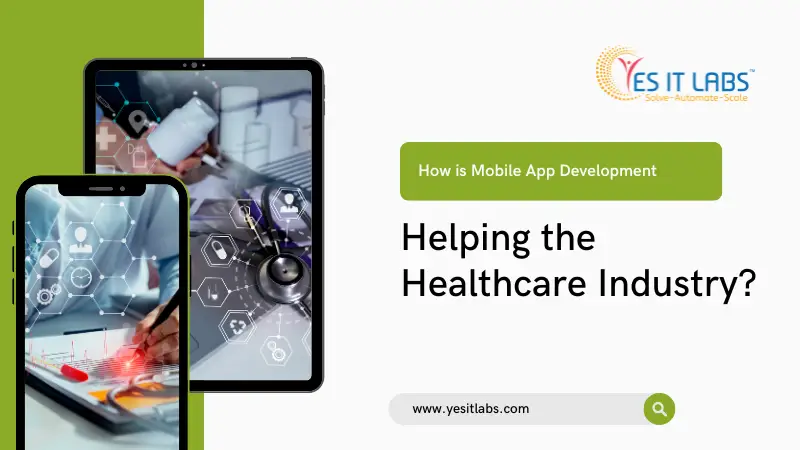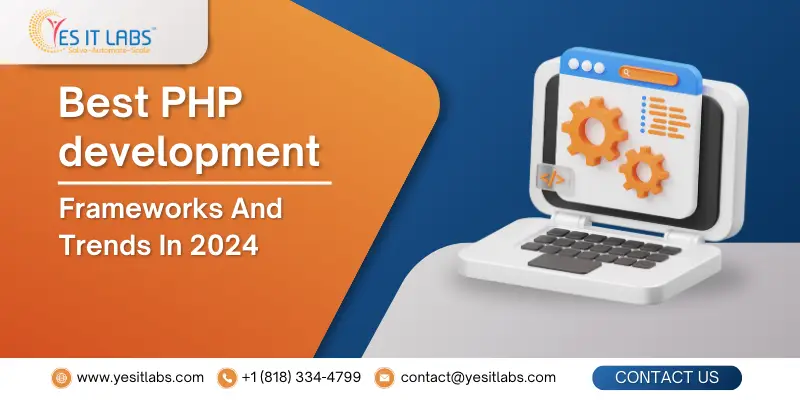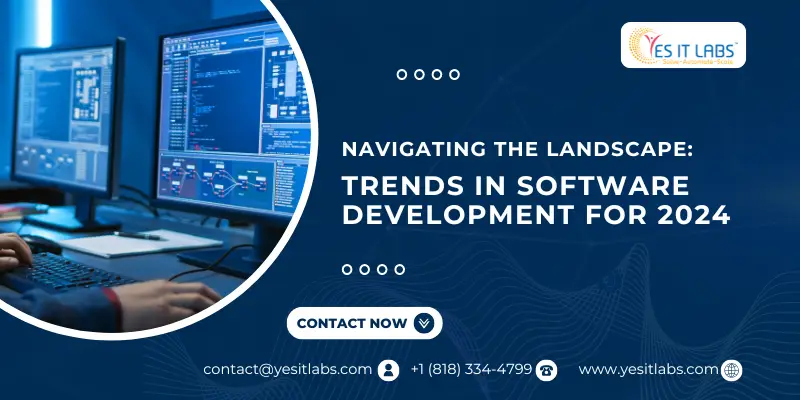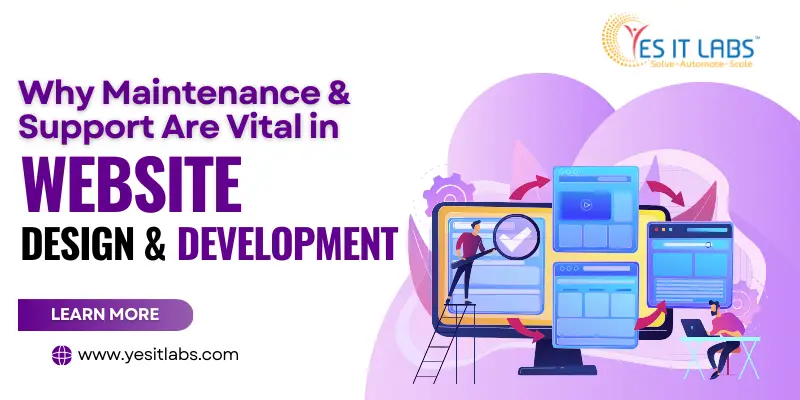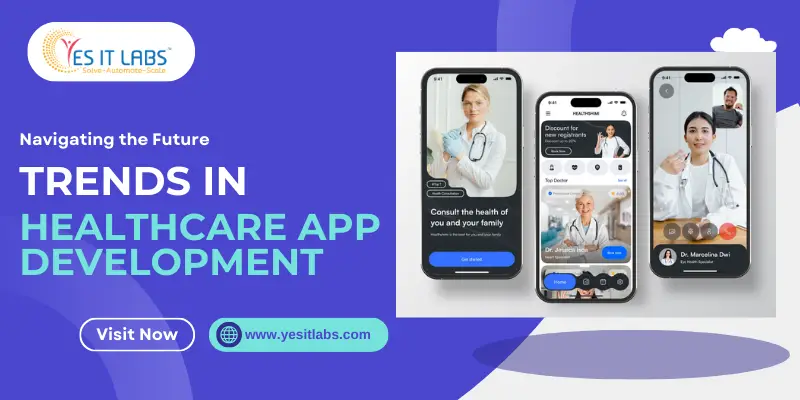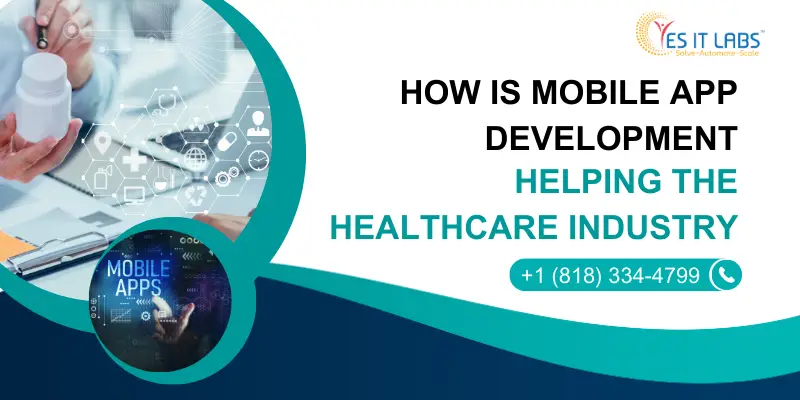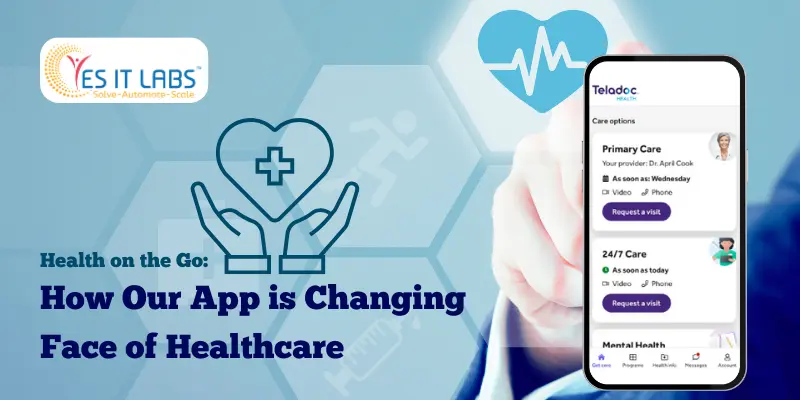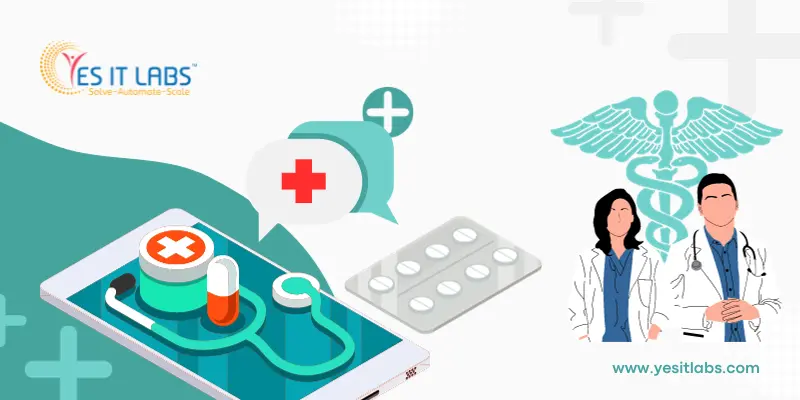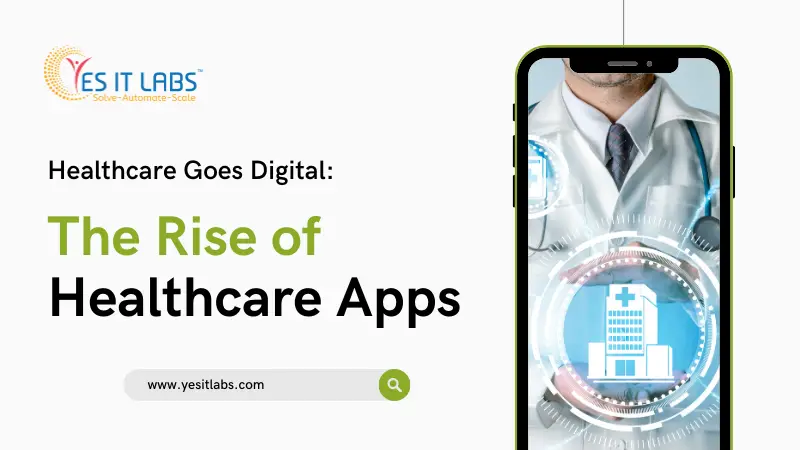
Healthcare Goes Digital: The Rise of Healthcare Apps
Welcome to the era where healthcare isn’t just about visits to the doctor’s office or long queues in hospitals. Thanks to the advent of technology, healthcare is now at your fingertips, quite literally! With the rise of healthcare apps, accessing medical assistance, tracking health metrics, and managing healthcare needs has never been easier. In this blog, we’ll dive into the world of healthcare app development, exploring its significance, impact, and the role of mobile app development services in revolutionizing the healthcare industry.
What is Healthcare App Development?
Healthcare app development refers to the process of creating mobile applications specifically designed for use in the healthcare industry. These applications can serve various purposes, such as:
- Patient Management: Apps can allow patients to manage their medical records, appointments, prescriptions, and communicate with healthcare providers.
- Telemedicine: With the rise of telemedicine, apps enable remote consultations between patients and healthcare professionals through video calls, messaging, or voice calls.
- Health Monitoring: Some apps integrate with wearable devices to track vital signs, activity levels, sleep patterns, and other health metrics.
- Medication Management: Apps can remind patients to take their medications, provide dosage information, and track adherence to treatment plans.
- Health Education: Healthcare apps often provide access to educational resources, articles, videos, and tools to help users make informed decisions about their health.
- Appointment Scheduling: Patients can schedule appointments with doctors, specialists, or other healthcare providers conveniently through the app.
- Remote Patient Monitoring: For patients with chronic conditions, apps can enable continuous monitoring of health parameters and alert healthcare providers in case of any abnormalities.
Developing a healthcare app involves a combination of software development skills, knowledge of healthcare regulations (like HIPAA in the United States), and an understanding of user needs and workflows in the healthcare sector. The process typically includes planning, designing, coding, testing, and deploying the app, often with iterative improvements based on user feedback and changing requirements.
How is Mobile App Development Helping the Healthcare Industry?
Mobile app development has emerged as a game-changer for the healthcare industry, offering a myriad of benefits for both healthcare providers and patients alike. Here’s a closer look at how mobile apps are transforming the landscape of healthcare:
1. Accessibility and Convenience:
Gone are the days when patients had to wait for hours to see a doctor for minor ailments. With healthcare apps, medical assistance is just a few taps away. Whether it’s scheduling appointments, consulting with healthcare professionals via telemedicine, or accessing medical records on-the-go, healthcare apps have made healthcare services more accessible and convenient than ever before.
2. Remote Patient Monitoring:
One of the most significant contributions of mobile app development to healthcare is remote patient monitoring. Through wearable devices and connected apps, patients can now monitor their vital signs, track health metrics such as blood pressure and blood glucose levels, and even receive real-time feedback from healthcare providers, all from the comfort of their homes. This not only improves patient engagement but also enables early detection of health issues, leading to timely interventions and better health outcomes.
3. Medication Management:
Adherence to medication regimens is a critical aspect of managing chronic conditions and preventing complications. Healthcare apps come to the rescue by offering medication management features such as medication reminders, dosage tracking, and pill identification. These features help patients stay on track with their medications, reducing the risk of missed doses and medication errors.
4. Health and Wellness Tracking:
Beyond medical treatment, mobile apps are empowering individuals to take charge of their health and wellness. From fitness tracking and nutrition monitoring to mental health support and stress management, healthcare apps offer a wide range of features to promote overall well-being. Users can set fitness goals, track their exercise routines, monitor sleep patterns, and even practice mindfulness meditation, all through their smartphones.
5. Data Analytics and Insights:
The wealth of data generated by healthcare apps is a treasure trove for healthcare providers and researchers. By harnessing the power of data analytics, healthcare organizations can gain valuable insights into patient health trends, treatment outcomes, and disease patterns. This data-driven approach not only facilitates personalized care but also enables predictive analytics for early intervention and preventive healthcare strategies.
FAQ:
Q: What are the key considerations for healthcare app development?
A: Healthcare app development requires careful consideration of factors such as compliance with regulatory standards (e.g., HIPAA for patient data protection), user experience design, interoperability with existing healthcare systems, and security measures to safeguard sensitive health information.
Q: How can mobile app development services contribute to healthcare innovation?
A: Mobile app development services play a crucial role in healthcare innovation by leveraging cutting-edge technologies such as artificial intelligence, machine learning, and Internet of Things (IoT) to develop advanced healthcare solutions. These services help healthcare organizations stay ahead of the curve by delivering scalable, secure, and user-friendly mobile applications tailored to their specific needs.
Q: Are healthcare apps suitable for all age groups?
A: Yes, healthcare apps cater to users of all age groups, from children to seniors. However, it’s essential to design apps with user-friendly interfaces and intuitive navigation to ensure accessibility for users with varying levels of technological proficiency.
In conclusion,
Healthcare apps represent a paradigm shift in the way healthcare services are delivered and consumed. By harnessing the power of mobile app development, the healthcare industry is embracing digital transformation to enhance patient care, improve operational efficiency, and drive better health outcomes. As we continue to witness advancements in technology, the future of healthcare looks promisingly digital, with healthcare apps leading the way.
Tags: best mobile app development company usa, healthcare app development, healthcare app services, Healthcare Apps, mobile app development, mobile app development company, mobile app development company in usa